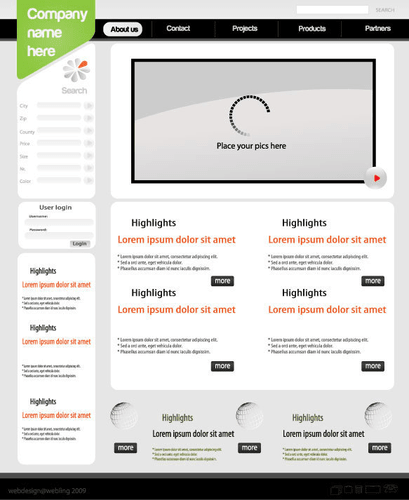Using a cleanup checklist for successful QBO cleanups
Content
But with so many expenses—utilities, telecom, insurance—it can be easy to lose track of accounts payable, resulting in nasty surprises like overcharges. Having a dedicated business credit card used exclusively for business purchases and having all business purchases go on that credit card, is an excellent first step toward good bookkeeping practices. These problems are easy to spot when you look for them, and they tend to indicate systematic problems with a company’s books. If one or more of these issues crops up, you’ll need to thoroughly audit your records and establish a steadier course for the future.
However, the reconciliation should still be reviewed for accuracy and compared to bank statements. The process should be reviewed regularly to look for software bookkeeping clean up checklist solutions that can save you time and hassle. Modern software can scan invoices and import accounts payable information directly into various software.
Using a cleanup checklist for successful QBO cleanups
If you’re still doing your own bookkeeping, you’ll want to block off an hour or two every week to review and reconcile transactions. But regardless of who manages your books, you’ll still want to track your income and stay on top of business expenditures every week, if not daily. The more often you commit to doing bookkeeping, the easier it is to complete and the lesser chance you have of spinning a messy financial web. Our Bookkeeping Clean Up Checklist is a step-by-step guide to turning your messy books into clean accounting records.
When it comes to tidying up your books, create a checklist to help you track what needs done and cross items off your to-do list. At some point, you might do the opposite of a data entry error, too. You may forget to record a transaction, which is an error of omission. Failing to record every transaction throws off your books (aka bad bookkeeping!). In short, bad bookkeeping puts your time and money—and maybe even your business—on the line.
Avoid tax pitfalls, stay up to date on the news that matter
Many small businesses begin as side projects; many barely record sales or revenue at first. Most fledgling businesses keep records of when they receive cash from sales or spend cash to cover bills, and leave it at that. If your business still handles its books this way, you should strongly consider moving to the accrual method of accounting, and this is the perfect time to do so. The accrual basis records transactions not when cash is exchanged but at the moment it is committed, through invoicing, purchase contracts, or other agreements. It’s a bit more work at the end of an already-long process, but it’s worth it. Submit your information here If you would like help evaluating your catch-up bookkeeping needs .
However, they must understand how your company operates to build a chart of accounts structured specifically for your business. Sort through invoices, credit card statements, receipts, bank statements, and other necessary financial data. At this point, you should identify any missing information and reach out to your clients for clarification or additional documentation. For cash accounting, a bookkeeping clean up will rely on your bank and credit card statements. If you lost some receipts it is okay, bank and credit card statements will be your acting source of truth.
Need Accounting Help?
My checklist starts with two main sections – one is for client information and then the other is the actual cleanup checklist. We have worked on 100’s of projects rapidly rebuilding financial records. Our accounting team provides a white glove experience where your finances are handled with speed and accuracy. When day-to-day operations take precedent, transaction entry and reconciliations are put on the backburner.
- The more you know, the better choices you’ll make for the future of your business.
- Plus, an organized system makes it easier to stay on top of upcoming payments and deadlines, and helps prevent costly mistakes.
- Bookkeeping is a day-to-day process of recording, classifying, and organizing a business’ financial transactions into a detailed “book” of record.
- Also, consider reminding customers or following up if they have unpaid amounts.
- They may help you find any missing information from all of your electronic transactions.
- One option is to use an app like TripData to capture how far you’ve traveled.
Check for data entry errors to clean up and sort out your books. You can find these types of errors by double-checking your work and preparing trial balances at the end of each reporting period. Once you’ve verified all your documentation is in order, you can put together financial statements for your clients. You should regularly check in to ensure the reporting you are providing is useful for them so you can ensure you are not wasting time producing reports that are not being used. Though most errors in bank transactions are caught during the reconciliation process, you should verify the ending balance in each account once you’ve finished your monthly bookkeeping process. If you are working with a physical file, make sure you have all of the information from the business owner that you need before you begin the process.
The Month-End Close Checklist For The Account Team
A bookkeeping clean up checklist is an actionable way to improve your financial health, identifying key steps to tidy your books and build a strategy to continue managing them on a regular basis. Once you’ve done the bedrock work of reconciling your cash accounts, you can move on to other issues affecting your books. None will be as important as verifying your cash flow against source documents, but each of them contributes to an accurate picture of your business and its true value.
General checks in the bookkeeping cleanup checklist refer to the tasks needed to ensure that the financial records are accurate and up-to-date. The following are some general checks that should be performed during bookkeeping cleanup. When you’ve reconciled your cash accounts, do the same for any lines of credit. This should be a quicker process, in part because there ought to be a close relationship between the payments you have made on your credit lines and your newly reconciled bank records. Be sure to record any interest paid on lines of credit as an expense, and keep an eye out for especially unusual activity, such as negative balances. As with your cash accounts, plan to reconcile each credit account once a month going forward.





Leave a Reply